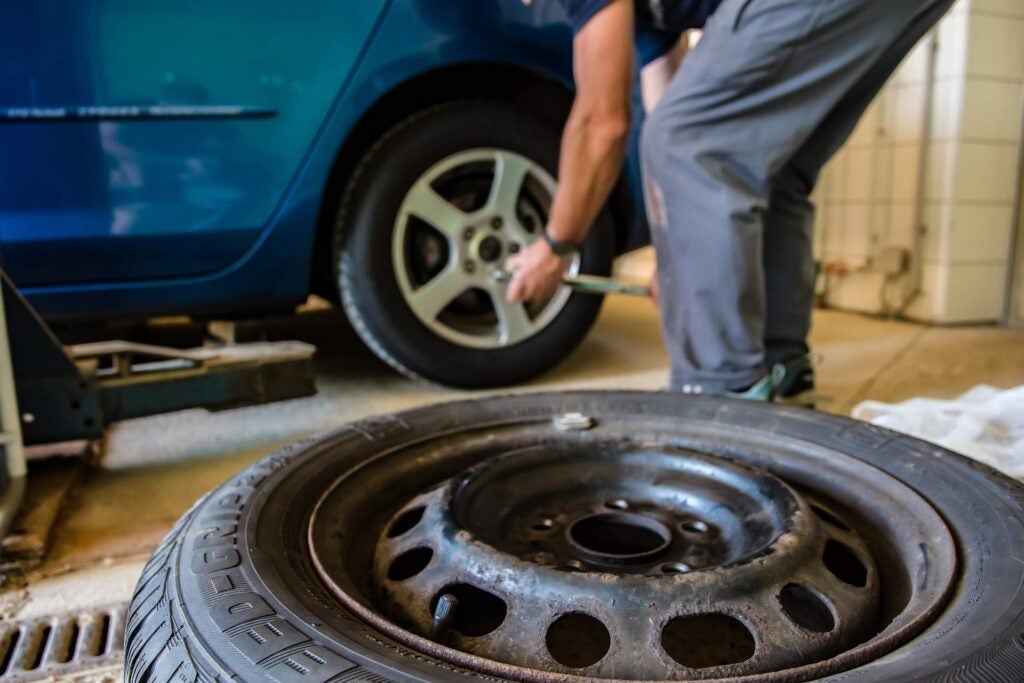Pressure to act on climate change is yet another burden
for a motor trade already suffering from a triple economic whammy,
says Peter
Cooke
Is the motor trade suffering a quadruple whammy?
The end of scrappage is in sight, despite the 100,000 unit
extension; the domestic economy is not recovering as predicted, or
as quickly as the rest of the world; there is the imminent return
of 17.5 percent VAT to bear in mind – and now ever-increasing
pressure to act on climate change.
The optimist might claim that in reality this
dolorous outlook could be turned into a real opportunity by the
lateral-thinking original equipment manufacturer (OEM), the captive
finance house – and the dealer. The pessimist might look deeper
into the bottle.
What is the environmental case – and how does it
fit into the great scheme of things? We have the ‘let the planet
boil – it’s your fault’ brigade; the global warming ‘deniers’; and
those who feel it’s just not their problem – it’s yours. We also
have the ‘tree huggers’ who believe that, if we really must drive,
we must drive small cars, drive slowly, ride bicycles, or walk –
preferably in the dark.
The UK is not unique; many countries are going
through the same soul-searching.
The Copenhagen Conference on Climate Change in
December should be seen as an opening gambit, offering solutions
but not expecting politicians or vested interests to agree to any
legally binding outcomes. It will outline stark options for
governments, for industries and, by implication, individual
companies.
How well do you really know your competitors?
Access the most comprehensive Company Profiles on the market, powered by GlobalData. Save hours of research. Gain competitive edge.

Thank you!
Your download email will arrive shortly
Not ready to buy yet? Download a free sample
We are confident about the unique quality of our Company Profiles. However, we want you to make the most beneficial decision for your business, so we offer a free sample that you can download by submitting the below form
By GlobalDataHalf the world’s political leaders may appear
there, although some may decline at the last minute if denied their
gas-guzzling motorcades. Would the ultimate political gesture be
for global leaders to walk together to the conference?
The OEMs turning green?
Vehicle manufacturers the world over are
investing in environmental protection – but how do they turn it
into real sales revenue with the private buyer? Conventional car
sales have slipped over the last couple of years and that fuel
efficiency bonus – a better carbon footprint – is being delayed. It
will take 12-15 years in Europe for the ‘gas guzzler generation’ to
be flushed through the system.
Business users would appear to be those with the
greatest focus on green issues and the company car. But, the
private buyer might argue, that is because the company is paying
and they change their company cars every three to four years. How
does one transfer a benefit for the planet to a benefit for the
private buyer?
After all, private buyers are under all sorts of
pressures to spend prudently, not to over-extend themselves, and to
cut back on credit card spending. The forthcoming UK general
election seems to carry a threat of a tax regime that is surely
encouraging many a prudent private buyer to hold back. Political
kite flying of £3,000 extra tax per unit – whether green or
desperation – on a new car is not exactly encouraging when
contemplating moving to a new, low-emission model.
Private buyers pay lip service to being
environmentally friendly. The real challenge is to turn that
feel-good factor into a buying frenzy.
That replacement conundrum is perhaps only half the
argument. Does the private buyer still have a slightly selfish
streak in them: “Why should I change my car for the sake of the
planet and the environment if I will finish up with a smaller
car?”
I wonder if that is the real question which motor
manufacturers and dealers need to address. How does one encourage
people to downsize their car’s carbon footprint – and still leave
the seller a margin?
Perhaps the real challenge with credit and the
motor trade is, how does one encourage buyers to move to smaller,
more fuel-efficient cars when buyers are thin on the ground and
credit is tight? Maybe the current scrappage schemes across Europe
could offer a pointer. The key to success is the idea of a bargain
and deployment of such schemes has shifted nearly two million
units.
Would that work on an environmental platform? Might
there be an opportunity to develop attractive finance plans for low
carbon emission cars, once scrappage schemes have run their course?
Copenhagen will have created a new sort of brand awareness: “Think
Copenhagen – think environment”. How about the Copenhagen
environmental finance programme, or even finance specifically
available for low-emissions cars? That need not be restricted to
new cars either. Are there ways a used car could be tuned to make
it more economical, or environmentally friendly?
While any such finance package would be targeted at
a specific market segment, it is a segment which must grow in
future as the Copenhagen ripple effect spreads, and would-be buyers
realise the importance of environmental social responsibility. Such
a finance programme might help plug part of the post scrappage gap
– a double whammy – in your favour. It is worth considering.
Professor Peter Cooke is the KPMG Professor of
Automotive Management, University of Buckingham







